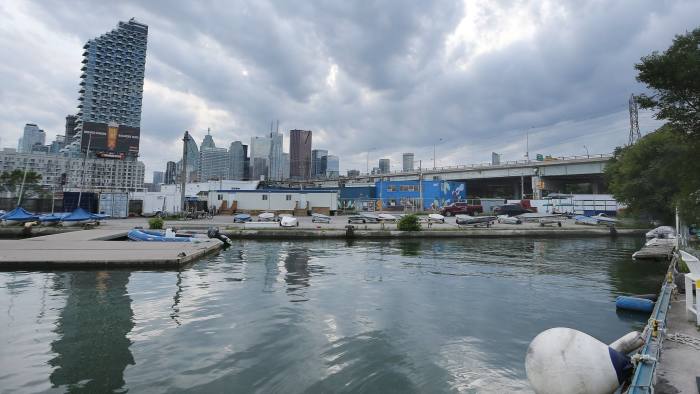This is a tale of two cities — Toronto and Barcelona — that may hold important lessons for others around the world. Both have big ambitions to change the way they operate but reflect very different visions of how smart cities should be run.
In Toronto, citizens have just submitted their initial reactions to Sidewalk Labs’ Master Innovation and Development Plan to develop a 12-acre waterfront district known as Quayside. This offshoot of Google promises to use innovative design and the latest digital technologies to create a radically new kind of urban community that it hopes to replicate elsewhere.
Born in the realm of bits, Google has been taking an increasing interest in the world of atoms. It recently announced a separate $1bn contribution to help develop 20,000 new homes in Silicon Valley over the next 10 years. Dan Doctoroff, the former deputy mayor of New York who is now Sidewalk Labs’ chief executive, says: “Our mission is to deliver dramatic improvements in urban life.”
In Toronto, the focus is on creating jobs, building cheaper housing and using technology to develop the first “climate positive” urban community in North America. The mass adoption of connected devices and sensors and the introduction of superfast 5G networks, enabling the creation of “digital twins” of real-world infrastructure, have energised technology companies and urban planners.
They believe that real-time data flows can be used to optimise cities’ “central nervous” systems, promising big improvements in transport, services, the environment and land use. Smart cities can be built from the internet up, as they say. Sidewalk promises some imaginative innovations, such as subterranean delivery systems and the extensive use of mass timber, that have won the support of prominent local politicians and business leaders.
But its plans have also triggered a fierce backlash from some academics and activists, who fear that Google may infringe citizens’ data rights and subvert democracy. An unelected private company, they argue, should not usurp the traditional functions of municipal government.
“What Sidewalk has provided is a vision where its own upper-hand in platform control, data governance, intellectual property, procurement and access has at each turn an obvious and legitimate alternative: the city itself,” wrote Ellen Goodman and Julia Powles, professors from Rutgers Law School and the University of Western Australia Law School, respectively
. Barcelona city government is pursuing a different approach, explicitly aiming to assert its citizens’ “digital sovereignty” by emphasising civic participation, social impact and public return. Francesca Bria, Barcelona’s chief technology and digital innovation officer, says her city has inverted the paradigm used by Sidewalk Toronto.

Rather than designing the technological infrastructure first and then figuring out how best to use it, Barcelona is applying existing technologies to solving everyday problems like pollution, affordable housing and transport. Central to Barcelona’s vision is the use of Decidim, an online platform that enables citizens to participate in decision making. Some 40,000 people use this “civic alternative to Facebook”, allowing them to initiate and shape policy.
“We need a new social contract for the digital age,” says Ms Bria. As part of this deal, the city’s data should belong to the citizens themselves. By opening up data sets in a secure way, Barcelona aims to stimulate local businesses and civic initiatives. “We regard data as a utility like water, electricity or roads,” Ms Bria says.
How the Toronto and Barcelona experiments fare over the next few years will inform policymakers around the world as rapid urbanisation emerges as one of the biggest policy challenges of our time. The number of people living in cities has exploded over the past few decades, from 751m in 1950 to 4.2bn today.
The UN is forecasting it will hit 6.7bn by 2050. There is no doubt that the latest technologies can offer huge improvements in the way that cities are run. In the cases of Toronto and Barcelona, there is also a big difference between invention and reinvention, between building something afresh and reimagining existing institutions.
But as Mr Doctoroff acknowledges, cities are always going to be immensely complex human organisms to manage, likening the challenge to trying to solve a “50-sided Rubik’s cube”. No matter how good the technology, smart cities will only ever be as clever as the people who design them.
Source: ft




